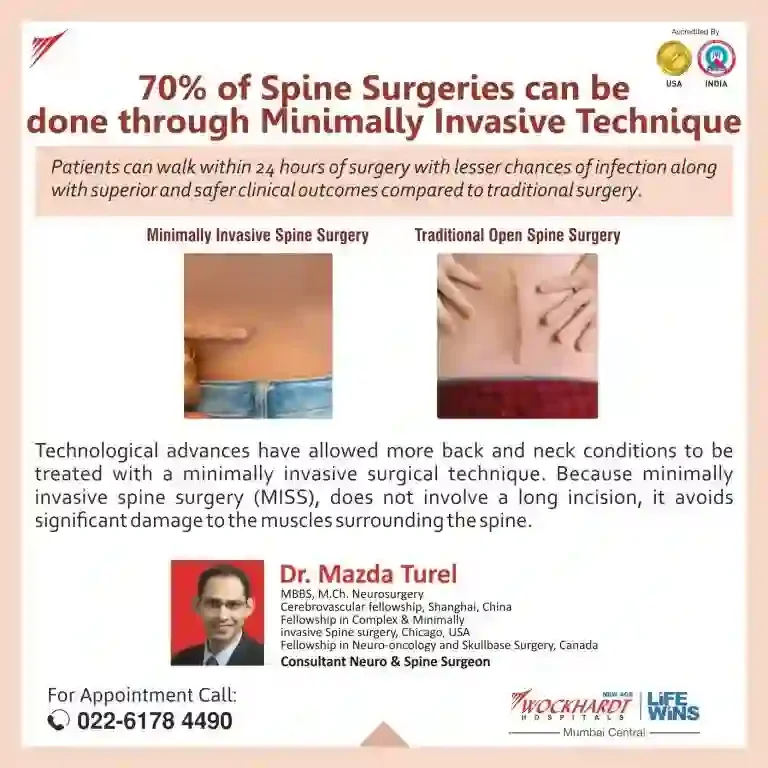Patients can walk within 24 hours of surgery with lesser chances of infection along with superior and safer clinical outcomes compared to traditional surgery.
Technological advances have allowed more back and neck conditions to be treated with a minimally invasive surgical technique. Because minimally invasive spine surgery (MISS), does not involve a long incision, it avoids significant damage to the muscles surrounding the spine.
Spine surgery is traditionally done as “open surgery” with a recovery period of 2-3 weeks. This means that the area being operated on is opened with a long incision to allow the surgeon to view and access the anatomy. MISS results in less pain after surgery and a faster recovery. Special instruments and viewing systems allow surgeons to work through small incisions, often shorter than an inch. These include tubular retractors, image-guidance systems, and endoscopes.
According to Renowned Neurosurgeon of the city, Dr. Mazda Turel “In my experience 70-80% of all spine surgeries can be done through the more advanced minimally invasive technique which leads to superior clinical and aesthetic outcome along with lower risk of infection and patients can often go home the same day or the next day of the surgery”
64-year-old Mrs. Supriya Patil was operated on 4 times in the 1900s and 2000’s for unremitting back and leg pain with very little improvement with each procedure. She had a 12-inch incision running down her lumbar spine from those surgeries and was so averse to having another operation that she preferred to be bed-bound over the past one year and was in immense pain. Her imaging was suggestive of instability with residual compression. With great difficulty, her family and her neurosurgeon convinced her to get a Minimally Invasive surgery done. By making 2 small incisions each on either side of her spine, using minimally invasive techniques, her Neurosurgeon was able to fix 3 unstable levels, release the pinching of the nerves and restore her spinal curvature. She was able to walk the same day of surgery and was discharged a few days later with significant pain relief and is off all pain medication.
According to Dr. Mazda Turel the Success of Minimally Invasive Spine Surgery Depends on:
- Choosing the correct patient
- Ensuring patients’ clinical findings corroborate the MRI/X-ray /CT scan findings
- Operating for the precise indication at the proper side and the right level
- Selecting the appropriate surgeon with
- Right training: a fellowship-trained surgeon in minimally invasive techniques at a high volume center
- Experience: A large number of surgeries performed independently.












